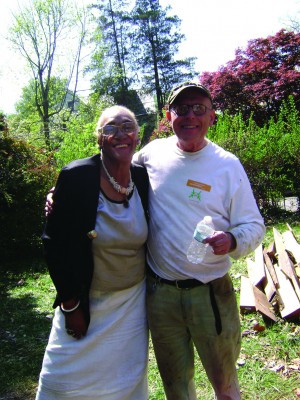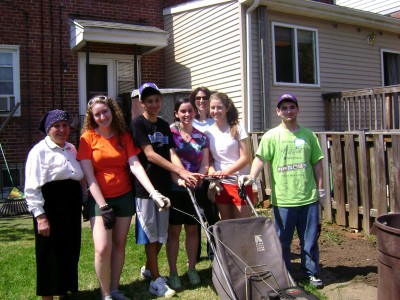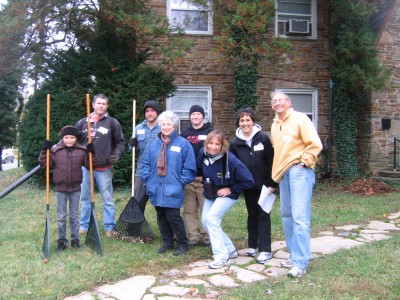CHAI: Making A Stand in Upper Park Heights Part 3

Article by Simone Ellin. Originally published in Generations 2009-2010: 50th Anniversary Double Issue: The Search for Social Justice.
Part III: Attention to Detail
Missed parts 1 & 2? Start here.
Baltimore Delegate Sandy Rosenberg served on the CHAI board when it was dedicated to senior housing. When The Associated began studying models of community stabilization, Rosenberg was active with the Baltimore Jewish Council, an Associated agency deeply involved with the project. “Associated leaders made a site visit to Cleveland to see what the Jewish Federation there was doing about community stabilization since they already had a program underway there. That was really when CHAI as it is known today began,” Rosenberg explains. “The Associated said, ‘We’re going to invest in this neighborhood.’ That led to the JCC’s restoration, for instance. Without CHAI, Har Sinai (a Reform synagogue then in the neighborhood) wouldn’t have sold to Rambam (an Orthodox day school). Before CHAI, synagogues that moved out of their buildings sold to churches.”

Rosenberg attributes some of CHAI’s success to its attention to detail. “Little things can be both pluses and minuses to neighborhoods, and making those minor changes leads to bigger things, and out of that, enthusiasm grows.” Under CHAI’s auspices, the presidents of the area’s five neighborhood associations (the Northwest Communities Presidents Forum) met on a regular basis, Rosenberg says. “That got people working together and looking out for their common interests. As an elected official, these meetings have helped me–they have given me an opportunity to meet with all of these presidents.”
Rosenberg cites new state legislation around slot machines as one recent benefit. “Because of the participation of NW Presidents, a percentage of the money from Pimlico’s slot machines will be distributed to the five neighborhoods around Pimlico. We brought this idea to the presidents and they helped to refine it. Earnings from slots over the next fifteen years are expected to be $45 million. The neighborhoods around the racetrack will receive some of those proceeds for community development.” In fact, in an effort to demonstrate their commitment to neighborhood residents and stakeholders, Rosenberg and his colleagues convinced the state to provide $75,000 up front. This sum was matched by the Baltimore City School System and the $150,000 was used to renovate the running track at Northwest High School.

Rosenberg believes that The Associated’s decision to invest in Upper Park Heights is important not only to the Jewish community but also for Baltimore and the entire Baltimore metropolitan area. “The city and the suburbs have a mutually dependent relationship,” he says. “People may think they are separate but suburbs are only as strong as the urban centers they surround.”
CHAI has also created collaborative relationships with Baltimore City, neighborhood schools, community task forces, the business community, and especially, the African American community. Sandy Johnson, an African American woman who has lived in Fallstaff for thirty-two years, first became aware of CHAI around ten years ago through her involvement with the Fallstaff Improvement Board (currently she serves as the Board’s president). “I went to a few meetings,” she recalls, “and saw that CHAI was trying to bring the Northwest neighborhoods together. I believe that had it not been for CHAI, we probably would not have had cohesive relationships with the four other neighborhoods.”

Johnson also credits CHAI with shepherding the NW Presidents Forum through the process of becoming one of only six Baltimore City community organizations to obtain Strategic Neighborhood Action Plan (SNAP) designation in 2003 through then-Mayor Martin O’Malley’s office. The purpose of SNAP is to create comprehensive plans that neighborhoods can use to implement positive changes. After receiving the designation, the group’s steering committee hosted a town meeting open to neighborhood residents and stakeholders to encourage their involvement in the planning process. After completion of the first SNAP plan in 2004, neighborhood improvements were implemented in the areas of housing, land use and zoning, open space, recreation and environment, transportation, streetscapes and gateways, education and schools, and public safety and community relations. In 2010, the NW Presidents Forum held a second town hall meeting to update and develop new recommendations for the strategy going forward.
